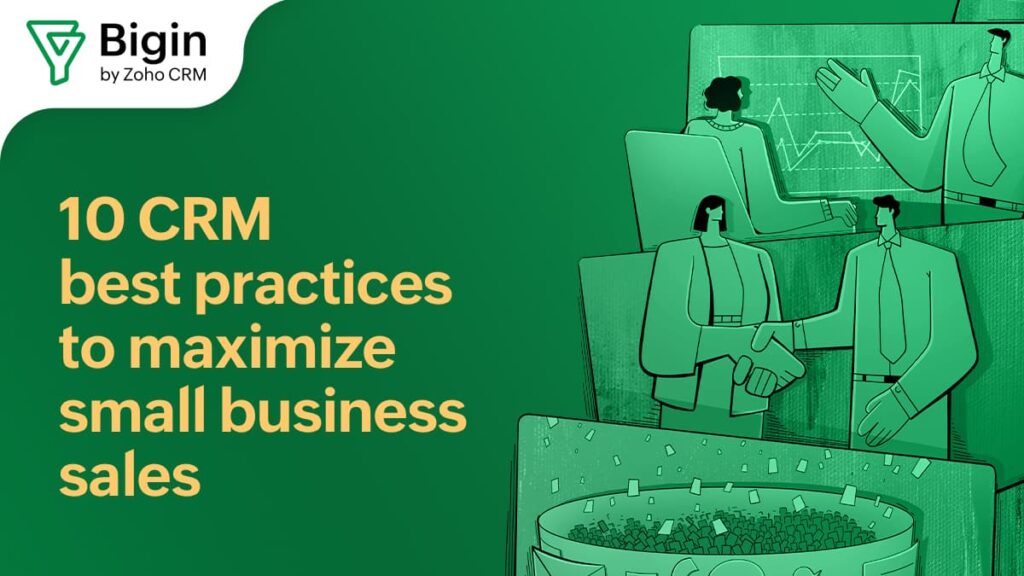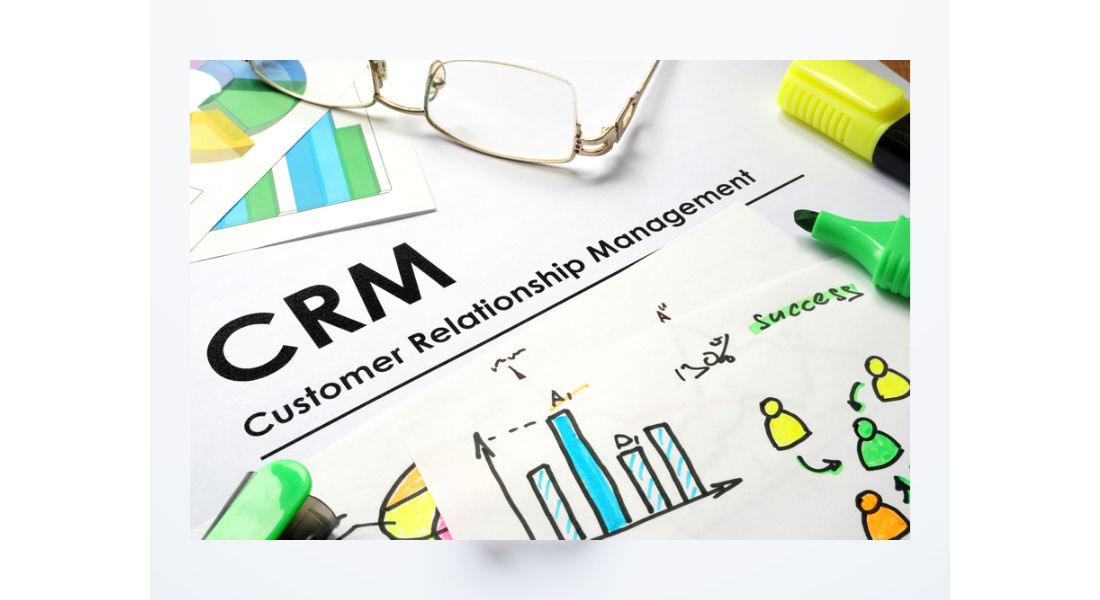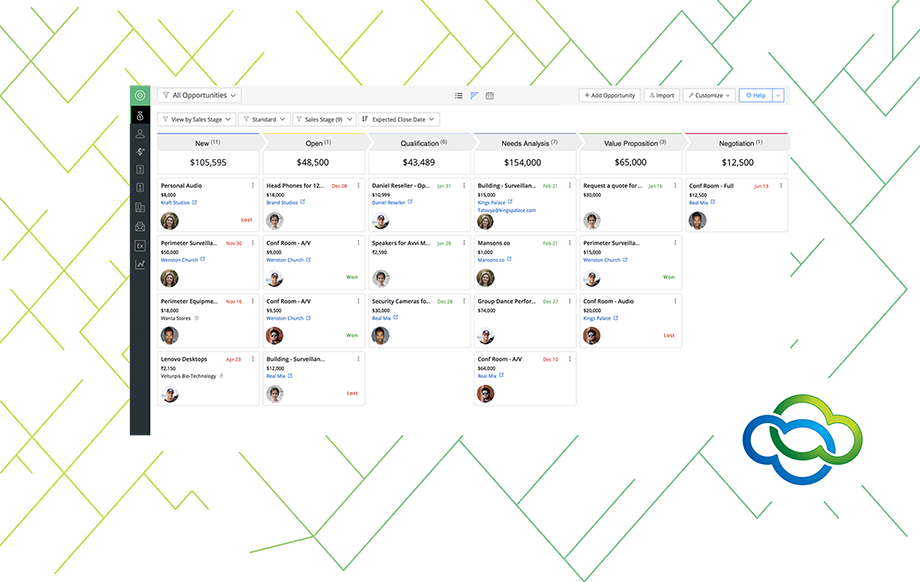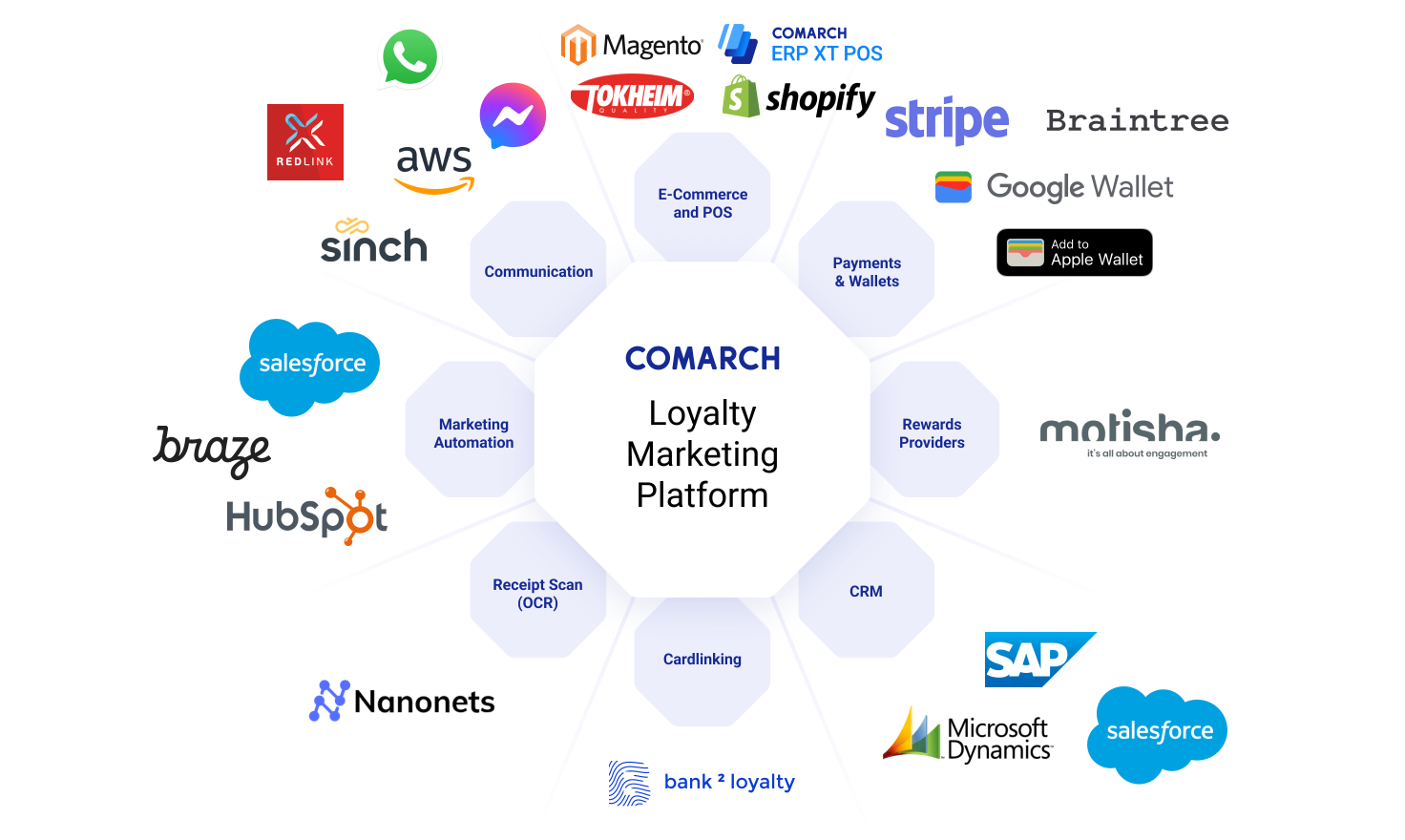Small Business CRM Strategies 2025: Your Roadmap to Customer Success

The business landscape is constantly evolving, and staying ahead requires adaptability and foresight. For small businesses, the key to thriving in 2025 lies in understanding and implementing effective Customer Relationship Management (CRM) strategies. This comprehensive guide will delve into the essential CRM strategies, providing a roadmap for small businesses to cultivate strong customer relationships, boost sales, and achieve sustainable growth. We’ll explore the latest trends, technologies, and best practices, ensuring you’re well-equipped to navigate the future of customer management.
Understanding the Importance of CRM for Small Businesses
In the competitive world of small business, every customer interaction counts. CRM isn’t just a software; it’s a philosophy that prioritizes understanding and meeting the needs of your customers. It’s about building lasting relationships, not just making one-time sales. For small businesses, this is particularly crucial because:
- Personalized Customer Experience: CRM allows you to personalize interactions, making customers feel valued and understood.
- Improved Customer Retention: Happy customers are loyal customers. CRM helps you retain customers by providing excellent service and addressing their needs effectively.
- Increased Sales and Revenue: By understanding customer behavior and preferences, you can tailor your sales efforts, leading to higher conversion rates and increased revenue.
- Enhanced Efficiency: CRM automates many manual tasks, freeing up your team to focus on more strategic activities.
- Data-Driven Decision Making: CRM provides valuable insights into customer behavior, allowing you to make informed decisions about marketing, sales, and product development.
Key CRM Strategies for Small Businesses in 2025
1. Choose the Right CRM Software
The foundation of any successful CRM strategy is the right software. In 2025, small businesses have a plethora of options, so choosing the right one is crucial. Consider these factors:
- Scalability: Select a CRM that can grow with your business. Consider your future needs and choose a platform that can accommodate them.
- Ease of Use: The software should be intuitive and easy to learn. Your team should be able to use it effectively without extensive training.
- Integration: Ensure the CRM integrates with your existing tools, such as email marketing platforms, social media channels, and accounting software.
- Features: Choose a CRM with the features you need, such as contact management, sales automation, marketing automation, and reporting.
- Mobile Accessibility: In today’s fast-paced environment, mobile access is essential. Choose a CRM that offers a mobile app or a responsive web interface.
- Price: Consider your budget and choose a CRM that offers a pricing plan that fits your needs. Many CRM providers offer tiered pricing, so you can start with a basic plan and upgrade as your business grows.
Some popular CRM options for small businesses in 2025 include:
- HubSpot CRM: Known for its user-friendliness and comprehensive free plan.
- Zoho CRM: Offers a wide range of features and integrations, suitable for businesses of all sizes.
- Salesforce Essentials: A scaled-down version of Salesforce, ideal for small businesses.
- Pipedrive: Focused on sales pipeline management, perfect for businesses with a strong sales focus.
2. Implement a Customer-Centric Approach
At the heart of any successful CRM strategy is a customer-centric approach. This means putting your customers first in everything you do. Consider these strategies:
- Understand Your Customers: Gather as much information as possible about your customers, including their demographics, preferences, and purchase history.
- Personalize Interactions: Use the data you collect to personalize your interactions with customers. This includes sending targeted emails, offering personalized recommendations, and providing tailored support.
- Provide Excellent Customer Service: Respond to customer inquiries promptly and efficiently. Go above and beyond to resolve their issues and exceed their expectations.
- Gather Customer Feedback: Regularly solicit feedback from your customers to understand their needs and identify areas for improvement.
- Build Customer Loyalty Programs: Reward your loyal customers with exclusive offers, discounts, and other perks.
3. Automate Key Processes
Automation is a key component of any effective CRM strategy. By automating repetitive tasks, you can free up your team to focus on more strategic activities. Consider automating these processes:
- Lead Management: Automate the process of capturing, qualifying, and nurturing leads.
- Email Marketing: Automate email marketing campaigns, such as welcome emails, follow-up emails, and newsletters.
- Sales Follow-up: Automate sales follow-up tasks, such as sending reminders and scheduling appointments.
- Customer Support: Automate customer support tasks, such as assigning tickets, routing inquiries, and providing automated responses.
- Reporting: Automate the process of generating reports on your CRM data.
Automation tools can streamline workflows and improve efficiency, allowing your team to focus on building relationships and driving sales.
4. Leverage Data Analytics
CRM systems generate a wealth of data. By analyzing this data, you can gain valuable insights into customer behavior, sales performance, and marketing effectiveness. Consider these strategies:
- Track Key Metrics: Identify the key metrics that are most important to your business, such as customer acquisition cost, customer lifetime value, and conversion rates.
- Use Reporting Tools: Use your CRM’s reporting tools to track these metrics and identify trends.
- Analyze Customer Behavior: Analyze customer behavior to understand their preferences, purchase patterns, and pain points.
- Segment Your Customers: Segment your customers based on their demographics, behavior, and purchase history. This will allow you to tailor your marketing and sales efforts to specific customer groups.
- Make Data-Driven Decisions: Use the insights you gain from data analytics to make informed decisions about your marketing, sales, and product development strategies.
Data analytics empowers you to make informed decisions, optimize your strategies, and ultimately improve your bottom line.
5. Integrate Social Media
Social media is an integral part of the customer journey. Integrating social media into your CRM strategy can help you engage with customers, build brand awareness, and generate leads. Consider these strategies:
- Monitor Social Media: Monitor social media channels for mentions of your brand, products, and services.
- Engage with Customers: Respond to customer inquiries and comments on social media.
- Use Social Media for Lead Generation: Use social media to generate leads by running targeted ads and promoting your content.
- Integrate Social Media with Your CRM: Integrate your social media accounts with your CRM to track customer interactions and gather data about their social media behavior.
- Run Social Media Campaigns: Run social media campaigns to promote your products, services, and special offers.
Social media integration allows you to build stronger relationships with your customers, increase brand visibility, and drive sales.
6. Prioritize Mobile CRM
In 2025, mobile access is no longer a luxury; it’s a necessity. Ensure your CRM is accessible on mobile devices. This allows your team to:
- Access Customer Data on the Go: Access customer information, sales data, and other important information from anywhere, at any time.
- Update Customer Records in Real-Time: Update customer records and track interactions in real-time, ensuring your data is always accurate and up-to-date.
- Manage Sales Activities: Manage sales activities, such as scheduling appointments, making calls, and sending emails, from their mobile devices.
- Respond to Customer Inquiries Quickly: Respond to customer inquiries quickly and efficiently, regardless of their location.
- Improve Sales Productivity: Mobile CRM empowers your sales team to be more productive and efficient, allowing them to close more deals.
A mobile-optimized CRM ensures your team can stay connected and productive, even when they’re on the move.
7. Embrace AI and Machine Learning
Artificial intelligence (AI) and machine learning (ML) are transforming the CRM landscape. Small businesses can leverage these technologies to gain a competitive advantage. Consider these applications:
- Predictive Analytics: Use AI and ML to predict customer behavior, such as churn risk and purchase likelihood.
- Personalized Recommendations: Use AI to provide personalized product recommendations and offers.
- Chatbots: Implement chatbots to provide instant customer support and answer frequently asked questions.
- Sales Automation: Use AI to automate sales tasks, such as lead scoring and opportunity management.
- Sentiment Analysis: Use AI to analyze customer feedback and identify areas for improvement.
AI and ML can help you personalize the customer experience, improve sales performance, and optimize your marketing efforts.
8. Training and User Adoption
The best CRM strategy is useless if your team doesn’t know how to use it. Invest in training and user adoption to ensure your team is proficient in using the CRM. Consider these strategies:
- Provide Comprehensive Training: Provide comprehensive training on the CRM software, covering all the features and functionalities.
- Offer Ongoing Support: Offer ongoing support to your team, including online resources, FAQs, and dedicated support staff.
- Encourage User Adoption: Encourage user adoption by highlighting the benefits of using the CRM and providing incentives for users to embrace the system.
- Gather Feedback: Gather feedback from your team to identify areas for improvement and ensure the CRM is meeting their needs.
- Regular Updates and Refresher Courses: Conduct regular refresher courses and provide updates on new features and functionalities.
Proper training and user adoption are crucial for maximizing the value of your CRM investment.
Trends Shaping CRM in 2025
The CRM landscape is constantly evolving. Staying informed about the latest trends is crucial for maintaining a competitive edge. Here are some trends to watch in 2025:
- Hyper-Personalization: Customers expect personalized experiences. Businesses will need to leverage data and AI to deliver highly personalized interactions.
- Omnichannel Customer Experience: Customers interact with businesses across multiple channels. CRM systems will need to provide a seamless omnichannel experience.
- Data Privacy and Security: Data privacy and security are becoming increasingly important. Businesses will need to prioritize data protection and comply with relevant regulations.
- AI-Powered CRM: AI will continue to play a more significant role in CRM, automating tasks, providing insights, and personalizing customer experiences.
- CRM for Remote Teams: With the rise of remote work, CRM systems will need to support remote teams and facilitate collaboration.
- Focus on Customer Lifetime Value (CLTV): Businesses will shift their focus from short-term sales to building long-term customer relationships and maximizing CLTV.
Implementing Your CRM Strategy: A Step-by-Step Guide
Implementing a CRM strategy can seem daunting, but breaking it down into manageable steps can make the process easier. Here’s a step-by-step guide:
- Define Your Goals: Clearly define your CRM goals. What do you want to achieve with your CRM?
- Choose Your CRM Software: Select the right CRM software for your business.
- Plan Your Implementation: Develop a detailed implementation plan, including timelines, resources, and responsibilities.
- Migrate Your Data: Migrate your customer data from your existing systems to your new CRM.
- Customize Your CRM: Customize your CRM to meet your specific needs, including configuring workflows, creating custom fields, and integrating with other tools.
- Train Your Team: Provide comprehensive training to your team on how to use the CRM.
- Launch Your CRM: Launch your CRM and start using it to manage your customer relationships.
- Monitor and Optimize: Monitor your CRM performance and make adjustments as needed.
Measuring the Success of Your CRM Strategy
It’s important to measure the success of your CRM strategy to ensure you’re achieving your goals. Here are some key metrics to track:
- Customer Acquisition Cost (CAC): The cost of acquiring a new customer.
- Customer Lifetime Value (CLTV): The total revenue a customer generates over their relationship with your business.
- Customer Retention Rate: The percentage of customers you retain over a period of time.
- Conversion Rates: The percentage of leads that convert into customers.
- Sales Revenue: The total revenue generated from sales.
- Customer Satisfaction (CSAT) Scores: Measure customer satisfaction through surveys and feedback.
- Net Promoter Score (NPS): Measures customer loyalty and willingness to recommend your business.
- Customer Churn Rate: The percentage of customers who stop doing business with you.
Regularly reviewing these metrics will provide valuable insights into the effectiveness of your CRM strategy and help you identify areas for improvement.
Overcoming Challenges and Common Pitfalls
Implementing a CRM strategy is not without its challenges. Being aware of common pitfalls can help you avoid them and ensure a successful implementation.
- Lack of Planning: Failing to plan your CRM implementation can lead to delays, cost overruns, and a lack of user adoption.
- Poor Data Quality: Inaccurate or incomplete data can undermine your CRM efforts.
- Lack of User Adoption: If your team doesn’t use the CRM, it won’t be effective.
- Over-Customization: Over-customizing your CRM can make it difficult to maintain and update.
- Ignoring Customer Feedback: Ignoring customer feedback can lead to dissatisfaction and churn.
- Choosing the Wrong CRM: Selecting a CRM that doesn’t meet your needs can be a costly mistake.
By addressing these challenges proactively, you can increase your chances of success.
The Future of CRM for Small Businesses
The future of CRM for small businesses is bright. As technology continues to evolve, new opportunities will emerge. Here are some predictions for the future:
- Increased Automation: Automation will become even more prevalent, streamlining processes and freeing up human resources.
- Greater Personalization: Businesses will leverage AI and data to deliver even more personalized customer experiences.
- Integration of Emerging Technologies: Emerging technologies, such as blockchain and the metaverse, may play a role in CRM.
- Focus on Customer Experience (CX): Customer experience will become even more critical, with businesses focusing on creating seamless and positive customer journeys.
- CRM as a Central Hub: CRM will evolve into a central hub for all customer-related activities, integrating with other business systems.
Small businesses that embrace these trends will be well-positioned to thrive in the years to come.
Conclusion: Embracing CRM for Sustainable Growth
In 2025, CRM is no longer optional; it’s essential for small businesses that want to succeed. By implementing the right CRM strategies, small businesses can build strong customer relationships, improve sales performance, and achieve sustainable growth. From choosing the right software to embracing AI and automation, the strategies outlined in this guide provide a comprehensive roadmap for success. Remember to prioritize customer-centricity, leverage data analytics, and continuously adapt to the evolving landscape. By embracing CRM, small businesses can build a loyal customer base and secure a prosperous future.





